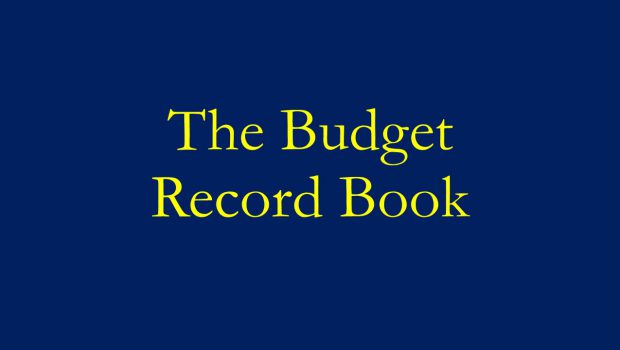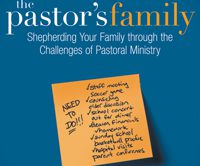Practical Discipleship: The Budget Record Book
Allow me to get the shameless appeal portion of this post out of the way immediately: I have recently put together a book, The Budget Record Book, and it is now available for purchase here.
This book, unlike the vast majority of my writing, is not explicitly theological. I do not discuss the doctrine of the Incarnation, I do not attack Pelagianism, and I do not explain how Open Theism is inconsistent with the doctrine of Biblical Inspiration. This book is meant to help people budget, and friends and family familiar with my theological work are looking at this book and saying “What gives?”
Truth be told, I never expected this to be my first book. I expected my first book to be about the Apostle’s Creed (and that book is still underway, stay tuned). However, I was led to putting this book together for several reasons.
I believe that Jesus Christ is Lord of everything. Kuyper noted that there is “not one square inch” in all of existence to which Christ’s Lordship does not extend, and I agree with Kuyper. Hence, Christ is Lord of our budget. It is not as if personal and family budgets are in some unique category of existence that gets excluded from obedience to Christ. His rule and reign knows no limits.
With that said, I have encountered no shortage of Christians who express varying degrees of budgetary problems. One of the great mistakes we make is thinking that this is really a matter of math when it is ultimately a matter of obedience. But assuming we address the obedience issue, we still have to deal with the math issue. Reality does not get suspended. While Christian budgeting is not simply a matter of mathematics, Christian budgeting does not ignore mathematics either. And I recognized a need for a practical help, something I could give to someone in counseling to help them deal with this.
In my experience, the problem most people face in budgeting is not knowing how they are spending their own money. I have heard people complain of budgeting problems, to which I say “How are you spending your money?” and they reply “I don’t know.” This confounds me, because I am very conscious about how I spend money. To say “I don’t know how I’m spending my money” would send me into mild shock. When I press further, and ask people how they are recording how they spend their money, they further say “I am not,” or they say “I just check online banking.”
Online banking is a good tool, and helpful in various respects. The problem is most people use it to check their account balance. And if they have money in their account, they assume they are free to spend it. This is just impulsive buying. When a bill then comes due next week, they don’t have any money in their account, because they already spent it. Online banking can give you a snap shot of what your account looks like now, but it doesn’t really tell you how to budget. Consequently, many Christians live in widespread disobedience with their money, not because they want to intentionally rebel, but because they are not taking any steps toward active obedience in the area of finance. You cannot use your money faithfully if you do not budget, and you cannot budget if you do not keep accurate financial records.
This is where The Budget Record Book comes into play, and what it has been developed for. It begins with a short explanation of how to use the book, and contains 12 monthly plans. Each month you record your beginning and ending account balances, set financial goals, and project your monthly income and expenses. There is then a checking transaction register for recording all financial transactions for the month. One mistake many people make is thinking they can skip the old check book because they use a debit card. But in financial terms, swiping a debit card is the same as writing a check, they both draw money from the same source. Hence, I recommend recording all transactions that will impact checking (including credit card transactions). Following the transaction register, there is a monthly review page. Here you compare your projections with your actual income and expenses, and then compare actual income and expenses to each other. Following this, there is space for planning adjustments if you spent more than you brought in. At the end of the 12 monthly plans is a savings transaction register. The monthly transaction registers are used for checking, so this transaction register is exclusively for your savings account. Finally, there is a short illustrated appendix that explains how to use The Budget Record Book in planning a budget, for those who do not have a budget in place.
That is it, the book will allow you to plan and record your budget for an entire year. It is not primarily about how to budget, but is a resource for recording your budget. It is a tool for practical discipleship. I hope you will find it useful.
Soli Deo Gloria,
Josiah










